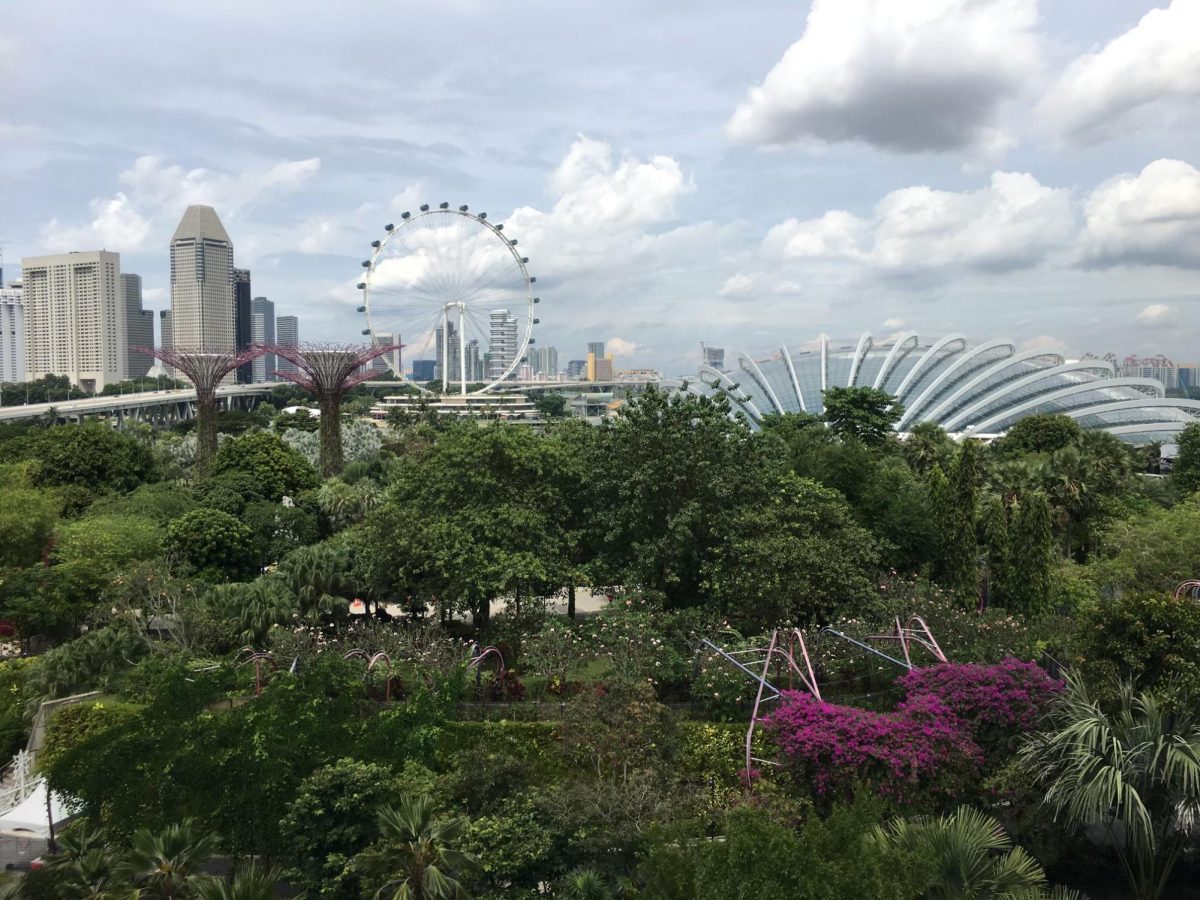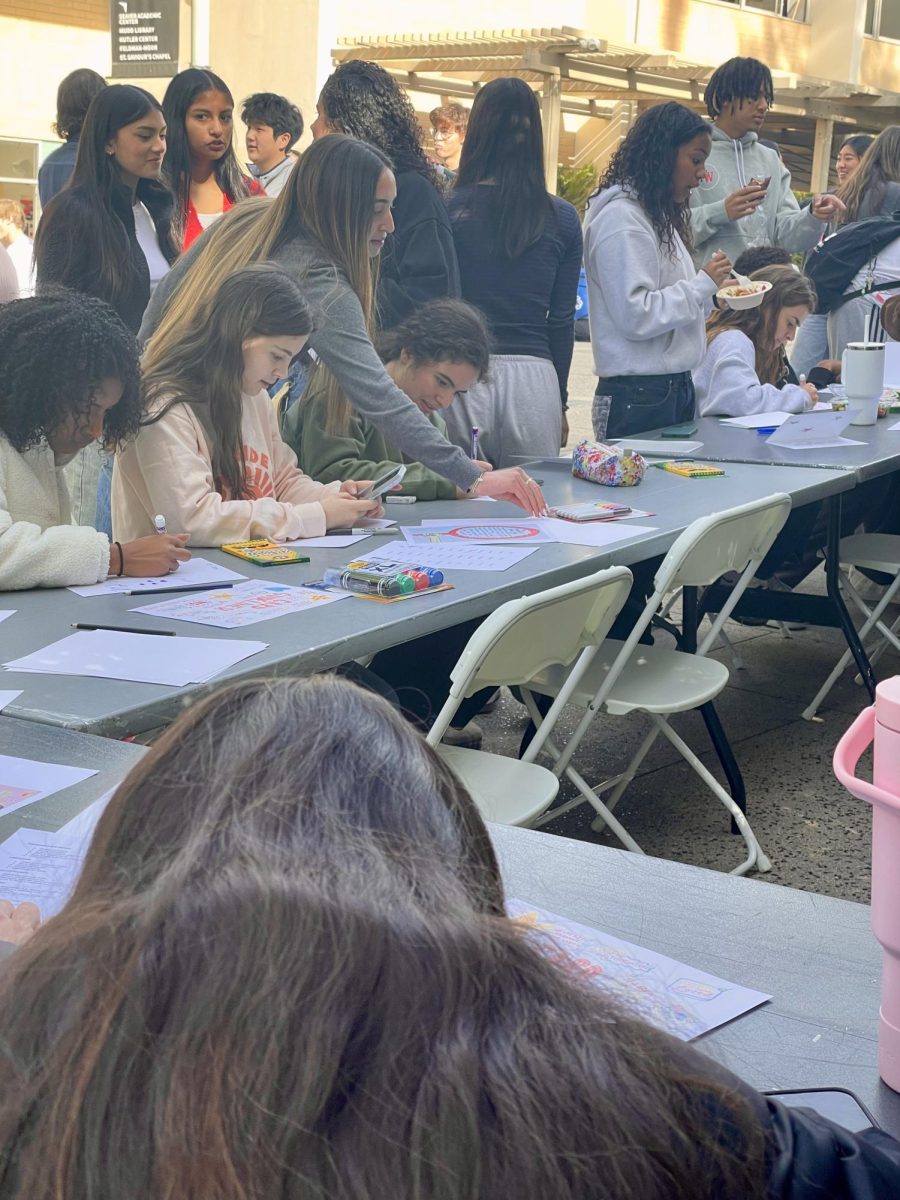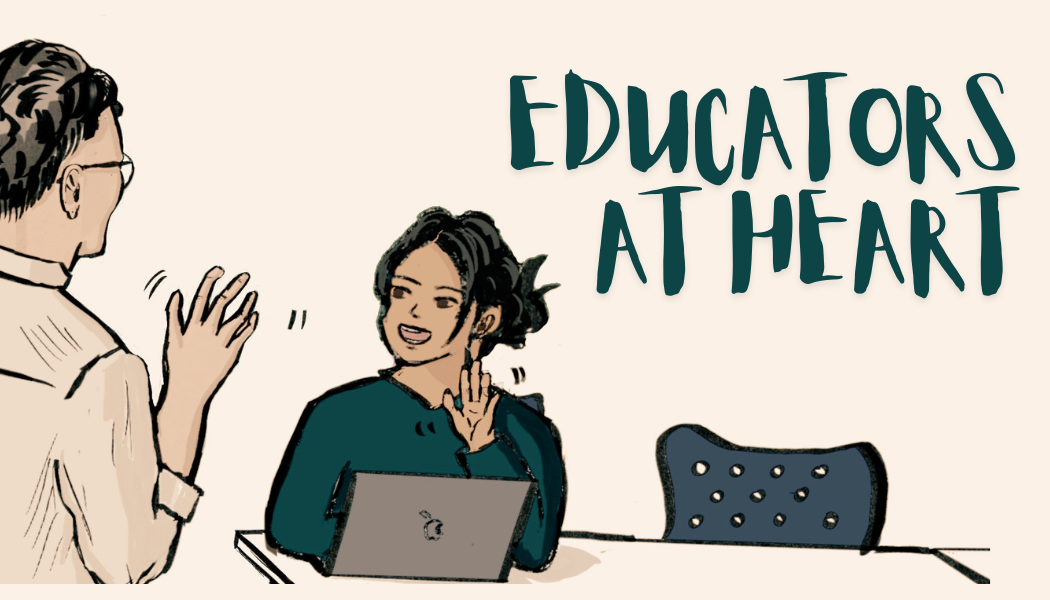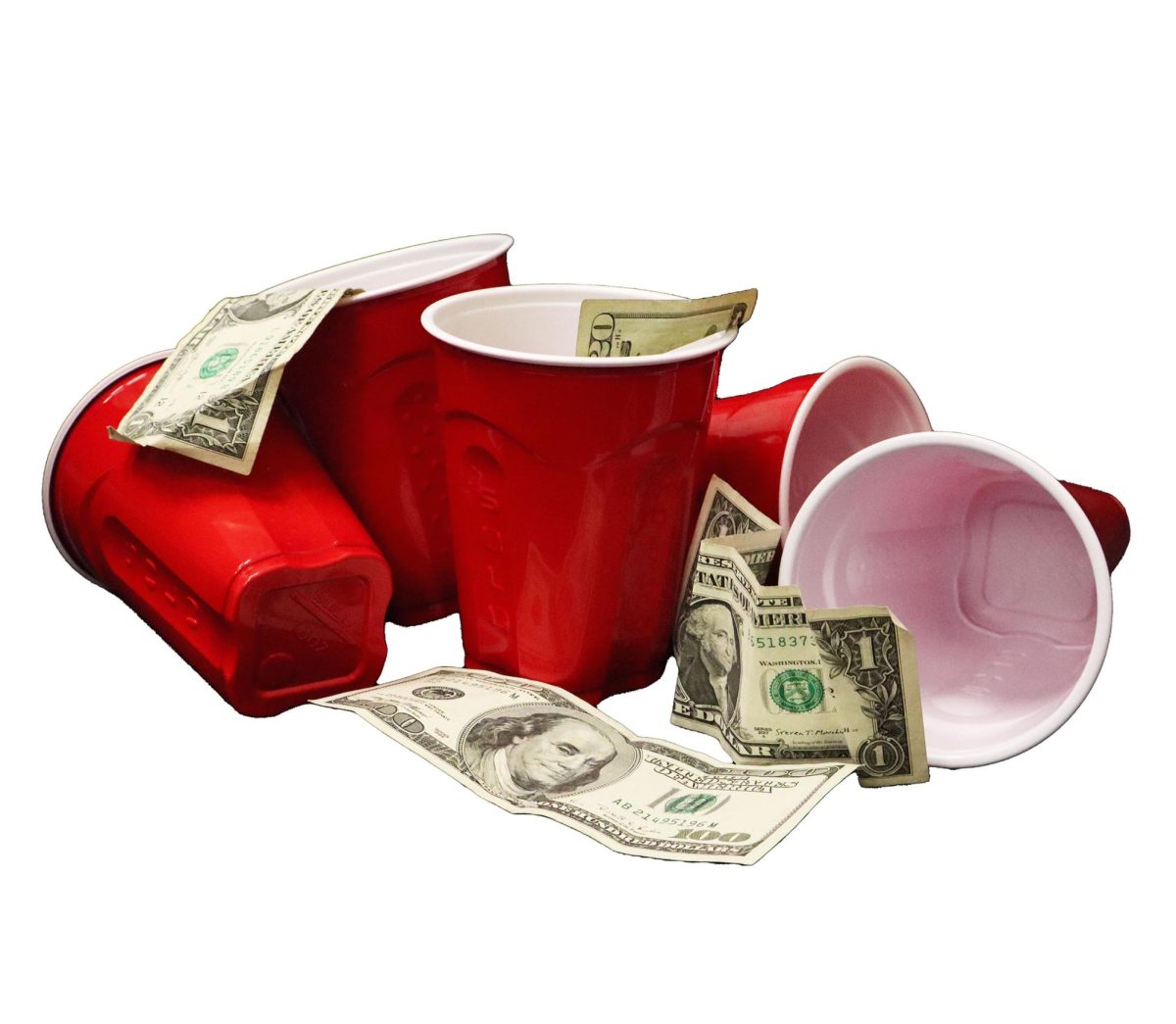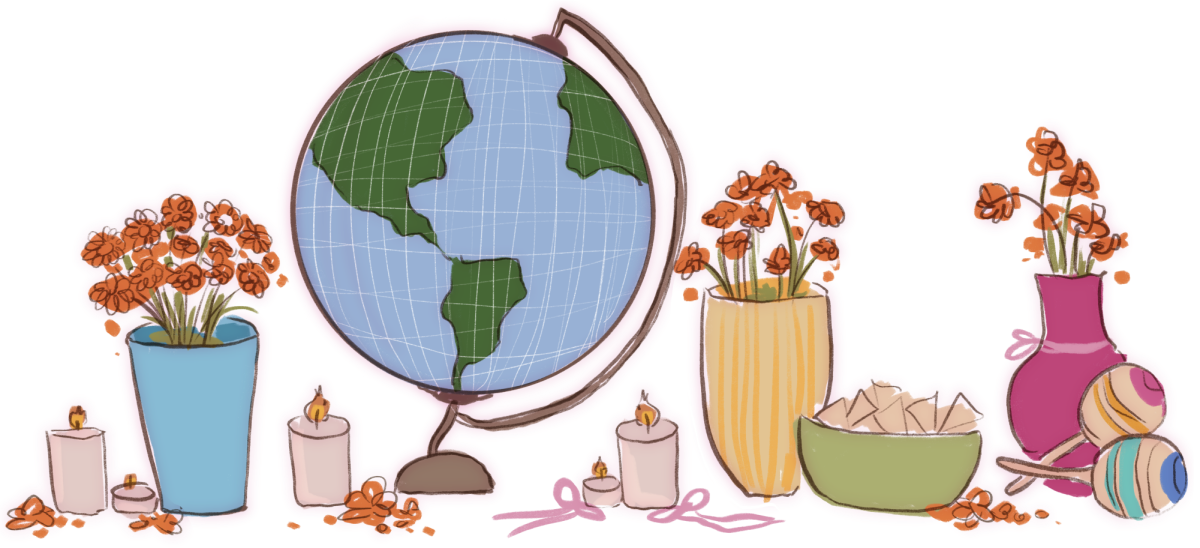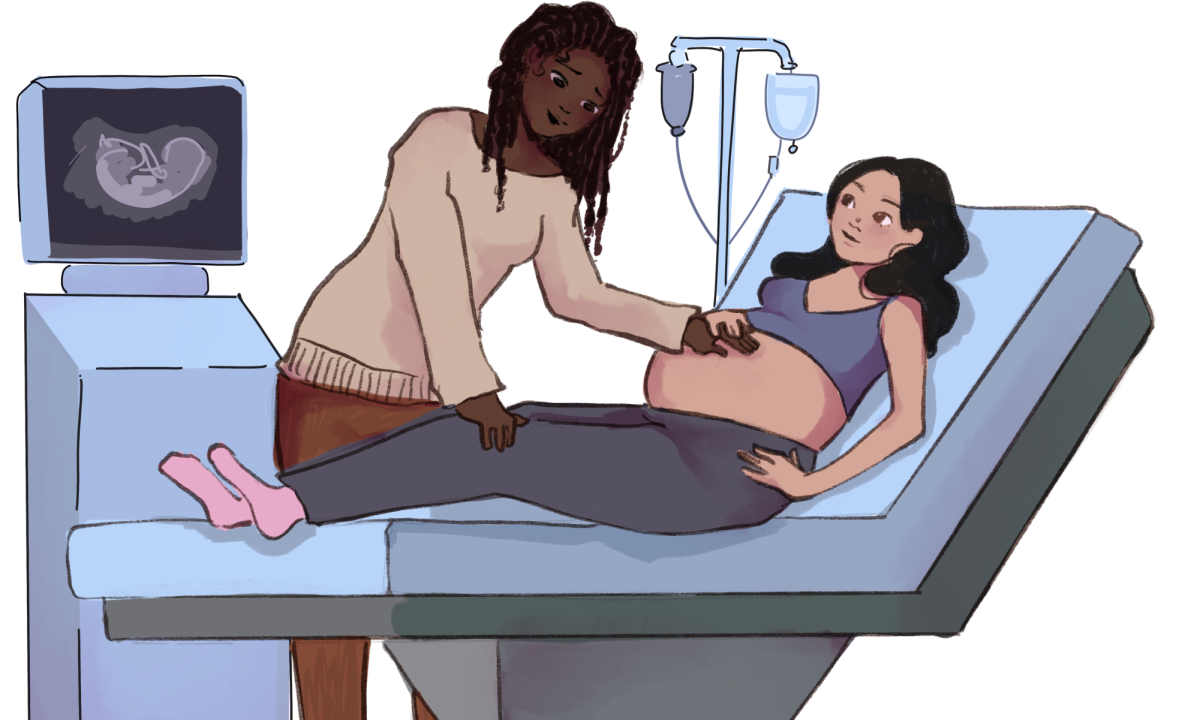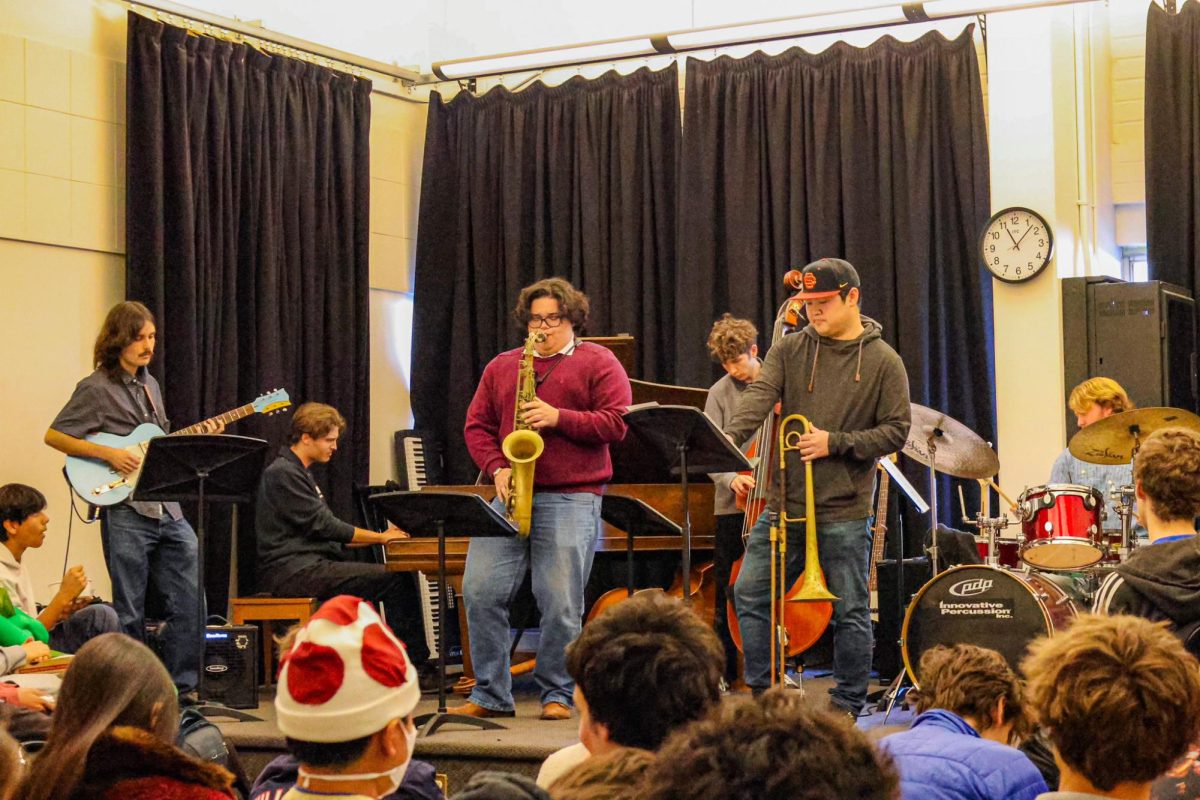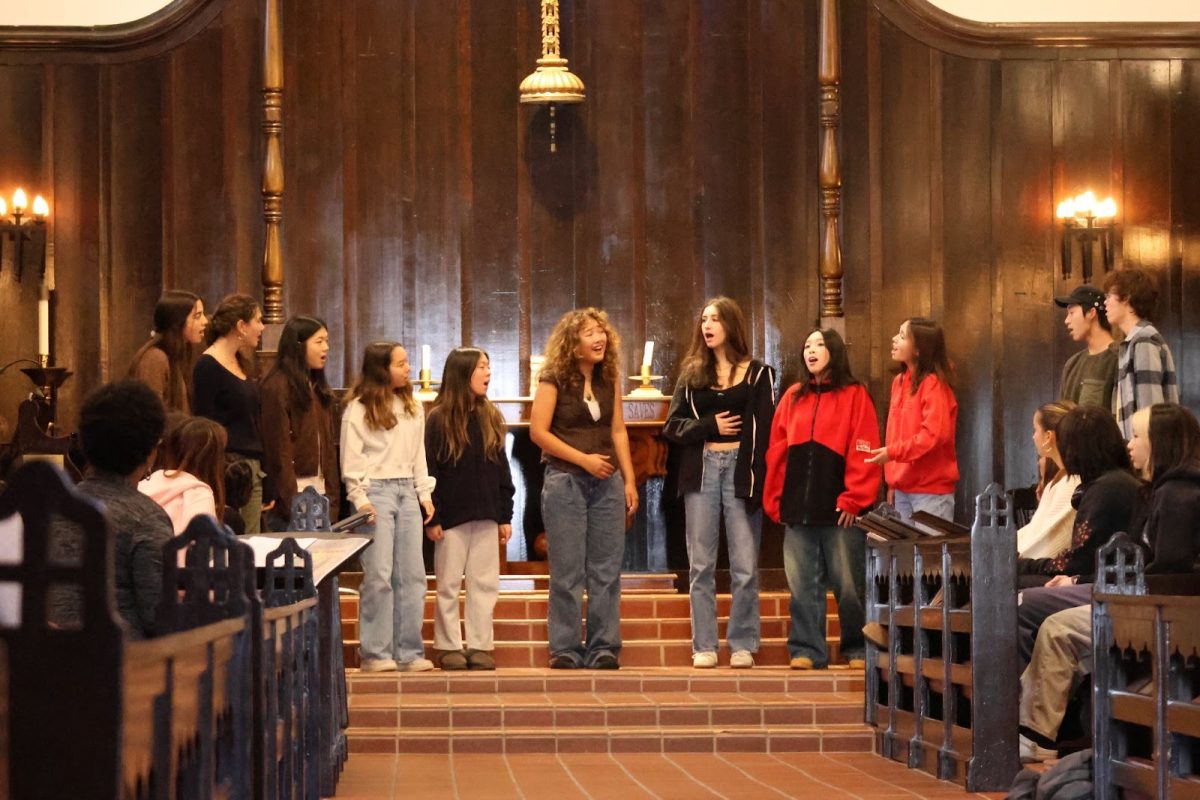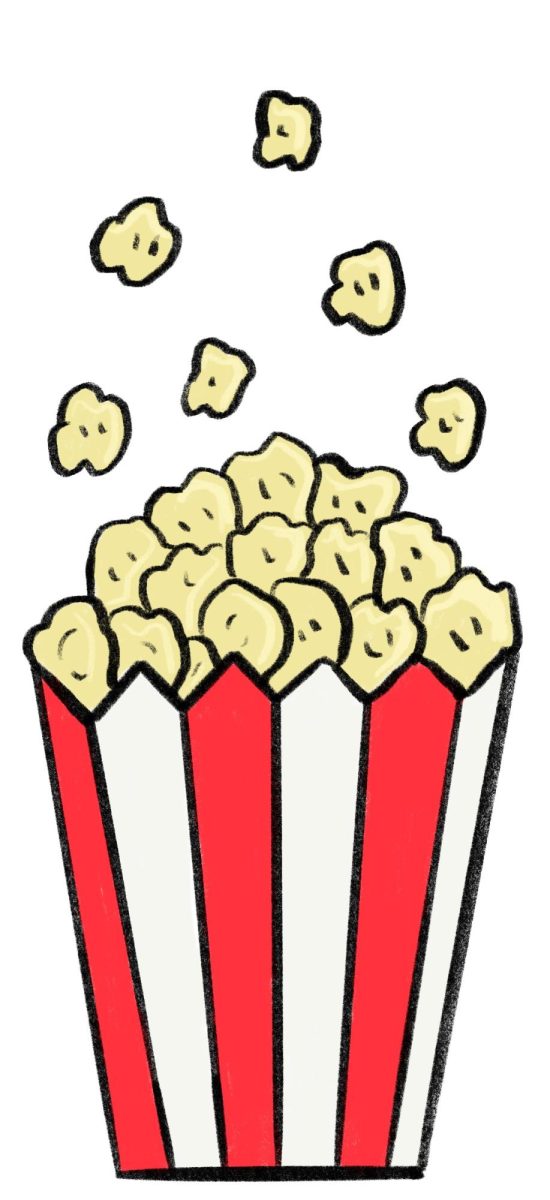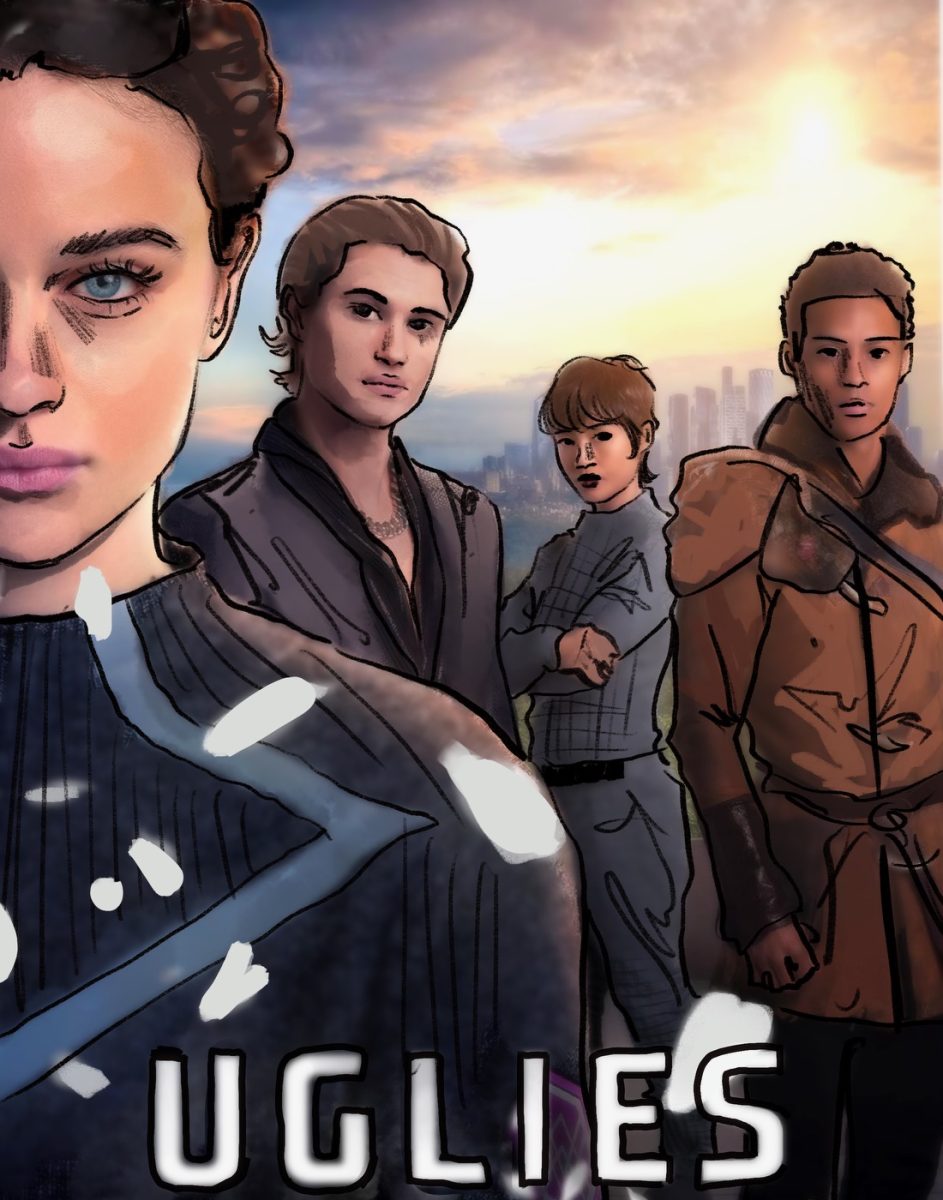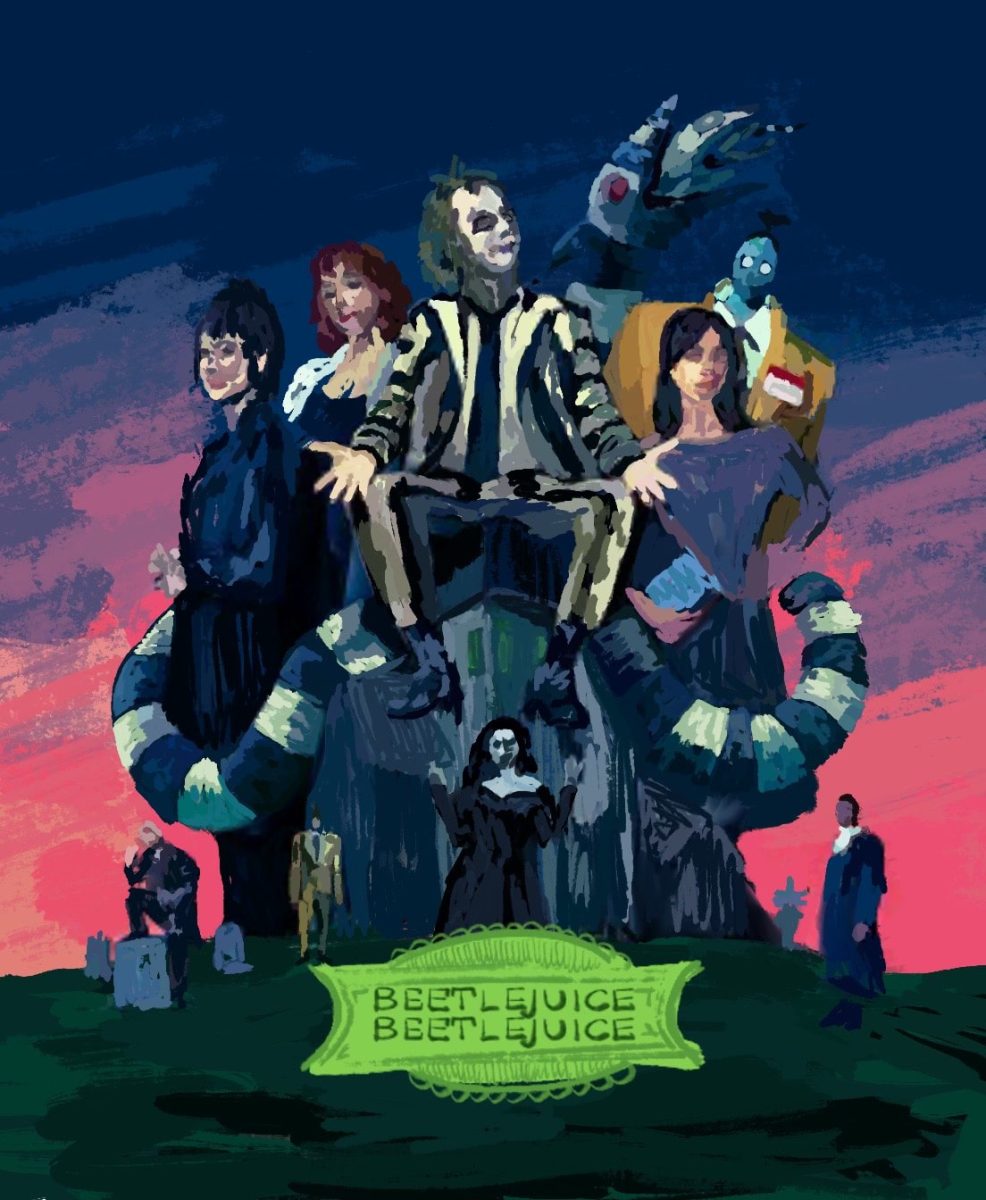Former NBA player and openly gay performance psychologist John Amaechi asked upper school students to combat poisonous words, preconceptions and stereotypes at an all-school assembly April 10.
Amaechi said that all words have impact and warned against “labels,” which he feels only reflect peoples’ appearance and demographic. He explained that others often have a hard time believing that he is gay or a psychologist, because his towering profile and the color of his skin seem to imply that he can be nothing but a basketball player. Amaechi said assumptions like these, based on physical appearance, are quite dangerous, especially for kids.
“I regularly got knocked back by gay bars because people think I’m not gay,” he said. ”Unless I show up in hot pants and an apple-tini, I’m not getting in.”
Amaechi was often accused of being “less black” because he was gay; some even thought he couldn’t be gay because he was black.
Even as a child, Amaechi was faced with ridicule because he didn’t like to exercise, but “loved eating pies.” He was mocked for being overweight, and the scorn haunted him even at the peak of his athletic career – although he had only 4 percent body fat, he was too self-conscious to take off his shirt and swim in the ocean alongside his Orlando Magic teammates.
“When you’re younger, negative reactions are like wet cement,” he said. “There is an opportunity to smooth it over, but if you don’t act immediately, it sets.”
As an 11-year-old, Amaechi began to look for a hero in books that he could identify with. He found his match after reading “The Hunchback of Notre Dame,” as both he and the hunchback seemed to invoke fear and receive ridicule from their respective peers. He even asked his mother if he, like the hunchback, was a monster. Amaechi jokingly compared his mother to a Jedi from “Star Wars” because of her ability to walk into a problematic situation and reduce tension by reminding involved parties, including himself, that they could cope with whatever problem they were confronted with. He says this experience helped inspire him to become a psychologist.
In his adult life, Amaechi said he is still “assaulted by people’s perceptions on a daily basis,” but prides himself on not fitting labels given to him. He encouraged students to do the same.
As a college student at Pennsylvania State University, Amaechi described living with people who recognized him as little more than a talented athlete. He said he liked to believe that people respected and appreciated him for talents besides basketball; however, when a stranger drove by and called him the “n-word,” he was forced to reexamine.
“The balloon of my life was punctured,” he said. “A stranger made me reevaluate myself at a time when I had finally thought that the way I saw myself was matched to the way people saw me.”
Amaechi said he ultimately had to “suck it up,” because he felt that his only choice was to “get back on the horse.”
In a reception at Feldman-Horn after the assembly, Amaechi advised that a nasty comment made by a stranger on the street should not impact you or make you feel bad, but that a comment made about your behavior by a friend should weigh heavily and cause a change in your behavior.
Amaechi said that he had heard positive reactions from both the student body and the faculty and said the impact of his visit is “a question of how many people are willing to take advantage of this plastic moment when they’re willing to change and be flexible to reflect and change a little and push so that by the time things go back to being rigid, they’ve already changed shape.”
After hearing Amaechi speak at the assembly that morning, Sam Schlesinger ’15 approached Amaechi and asked him to narrate his Video Art I project about growing up, titled “The Minister of Exams,” which they then recorded after school.
“He just had the right voice for my project. It was great because he was super easy to work with and really brought my project to the next level,” Schlesinger said.

